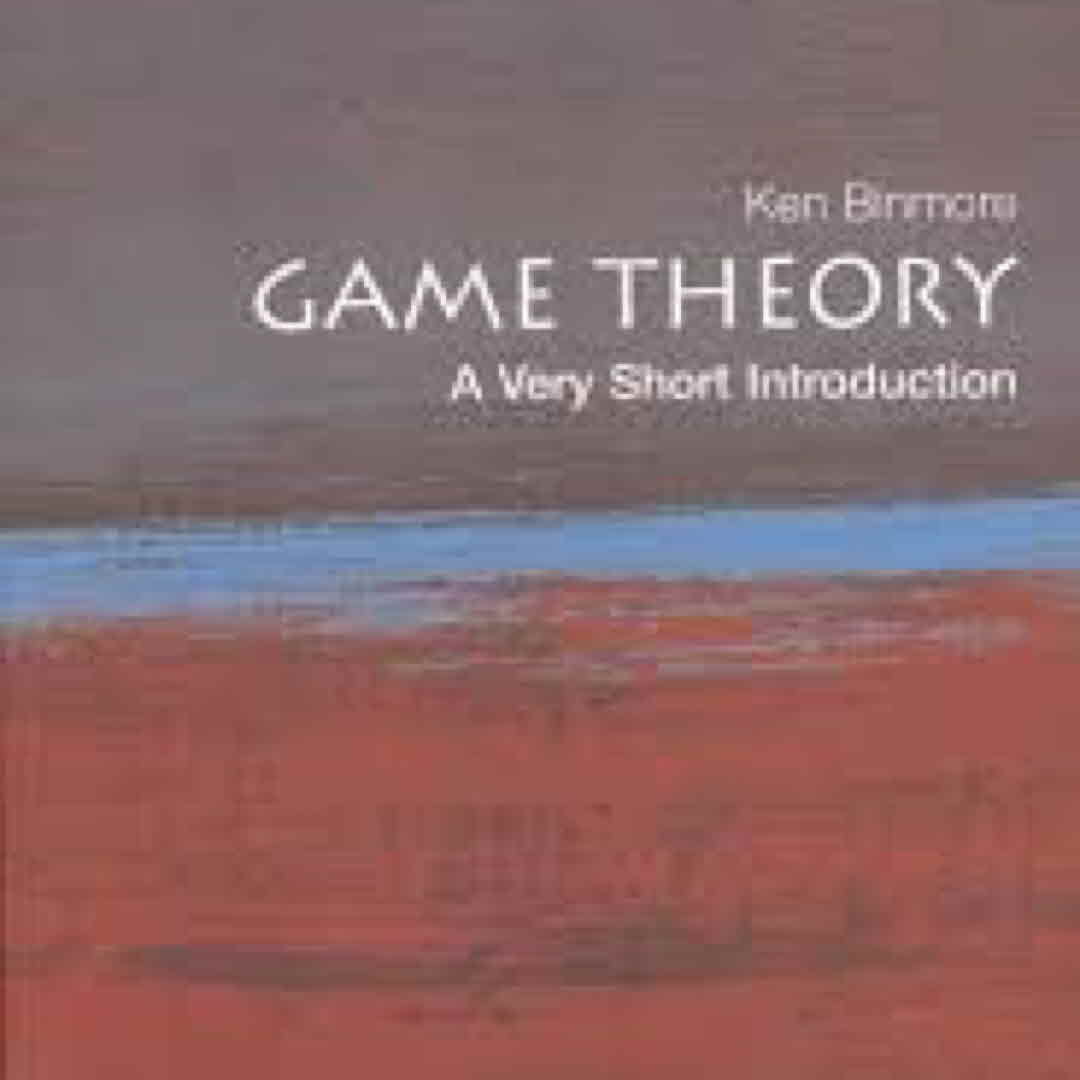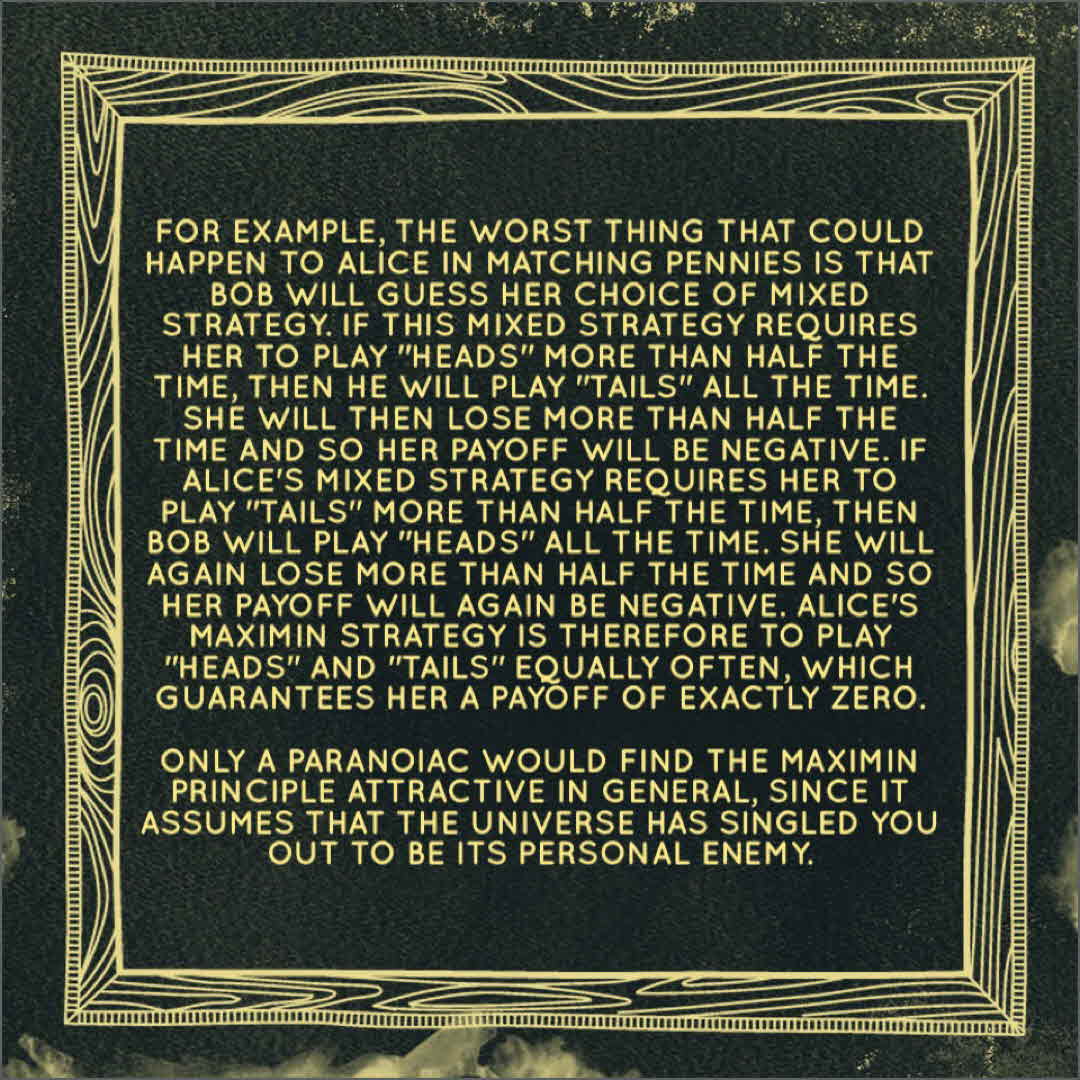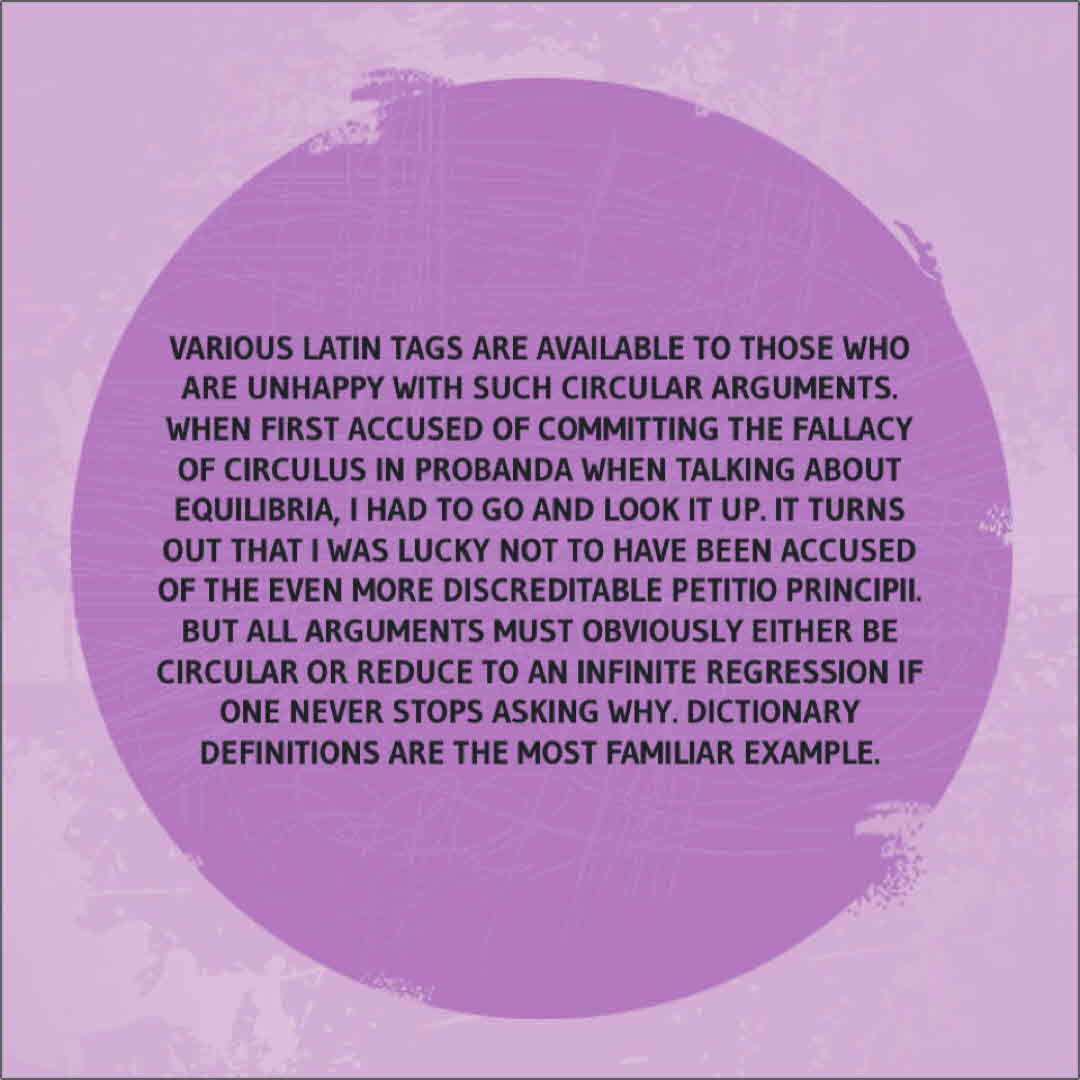
I was grasping about 5% of this in the earliest chapters, but my comprehension dwindled incrementally with each passing day. I give up.

I was grasping about 5% of this in the earliest chapters, but my comprehension dwindled incrementally with each passing day. I give up.

Here, the professor is critiquing Von Neumann's "maximin" theorem; I don't think you need to know anything about that to enjoy the passage. I myself can't – excuse the pun – make heads nor tails out of most of what he's trying to teach me here yet still rather enjoying myself.

This book is spraining my brain. (I chose the expression in homage to @sprainedbrain .) So far, that's okay.
"Circular reasoning (Latin: circulus in probando, "circle in proving"; also known as circular logic) is a logical fallacy in which the reasoner begins with what they are trying to end with." - Wikipedia
Petitio principii is Latin for begging the question, which has a more complicated meaning than most of us understand… Especially me!